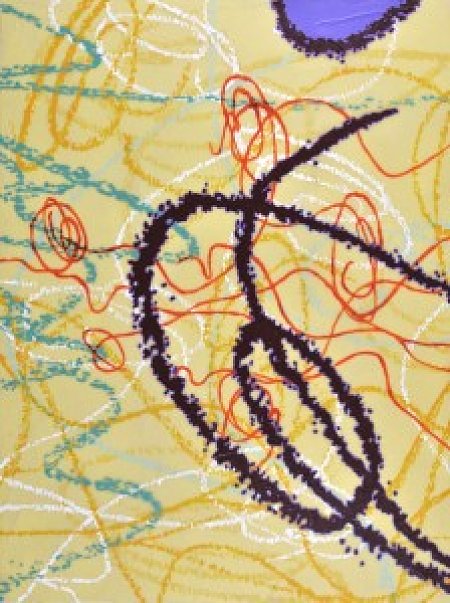
Numbers
I have no colorful details in mind, only her name: Olga, Olga, that’s what I repeat at night when I fall asleep, I repeat her name, “Olga,” and hope that the God of inspiration will bring some idea to my mind overnight… I repeat “Olga, Olga,” and I start crying, and I think that my name is Rita and it’s a typical Italian name, it’s not Russian, and I know that Rita must survive these difficult times despite the fact that Olga is dead.
IV.
Words come from emptiness now.
Before, they were coming from inside me, living with me in an apartment full of old furniture: a cherished cherry bouillotte table where my father would lay out the cards and explain to me the difference between the King and the Jack; a large wardrobe inherited from my mother’s ancestors; a jewelry chest where I loved to put my little fingers, hoping that it held treasures but only finding lonely earrings and brooches with crooked clasps left by my mother who had run from our home in haste.
Each day I would sit with an ink pen in one hand and touch an ink well with the other, as though trying to ignite words with this friction, and I would describe furniture in details, and it would lead me to stories.
What about that trunk? It has a story. Full of patriotism, my father wanted to fight in the Great War and promptly signed up, rented a little room in a Naples hotel, and decided to make his last day before military service distinct and full of action. He spent all his money in an upscale restaurant, ordering as many moscardini dishes as he could, because he couldn’t imagine his life without his moscardini. While he was enjoying his dinner, a young girl approached him and somehow, awkwardly positioning and repositioning their elbows through the artillery of plates to touch each other’s hands, they became friends.
He paid for her meal, too, and got drunk, not noticing that she was totally sober. With a concerned look on her face, she told him that she wanted to make sure that he was okay, that she would help him walk to his hotel. They got out of the restaurant under the ironic glances of the owner and two gaunt waiters; he didn’t notice these glances in his nauseous intoxication, but she was used to them and therefore unflappable. When he woke up, he remembered that he had been trying to lie down in bed and she had assisted his every movement, but he was not sure whether he had become a man that night. He felt embarrassed, because he didn’t remember what had happened, but he saw a stocking that she left by mistake or as a somewhat sadistic or sardonic “hello” from her.
The second reason he was ashamed was that he had overslept and missed a ship that all his new friends had boarded for Macedonia to fight the war. My father told me that he had woken up totally disheveled and with a bitter taste in his mouth no longer reminiscent of moscardini, that he had immediately noticed that the girl had stolen even a family portrait in a silver frame that he’d left standing on the side table, and that this realization was painful because he had thought her to be honest and was hoping that she would wait for him while he was fighting in the war.
Both with this prostitute and later with my mother, my father was very naïve.
When he ran to the pier, he saw his boat leaving, and no matter how hectically he jumped on the shore with his suitcase filled with underwear necessities and a supply of ink to write letters home to Mamma and Papá (the ink wells and pens made a funny sound jumping up and down with him inside his cardboard suitcase, the suitcase of his poorer commilitone to whom he gave his leather one), no matter how many people he approached asking for assistance–bureaucratic or hands-on and practical–nobody could help to erase this ever-increasing distance between himself and the ship–the distance between him and his death, because the ship was bombed by the enemy and went down, taking with it all the would-be heroes, as my father learned later from the newspapers.
Or what about the telegram?
This framed telegram was from the Russian physiologist Ivan Pavlov, who was fascinated by the work of the Italian physiologist Angelo Rosso. Angelo Rosso researched what mountaineers experienced in high altitude, and he also invented a device that determined, by how your blood pulsed and your heart pounded, whether you were lying or telling the truth. His published findings were later translated into multiple languages, including Russian. When the Russian physiologist heard of his Italian colleague’s death, he promptly sent a telegram to Rosso’s relatives with condolences, and this telegram was framed and stood for a long time in Olga’s home, because Angelo Rosso was married to her sister Mimí.
